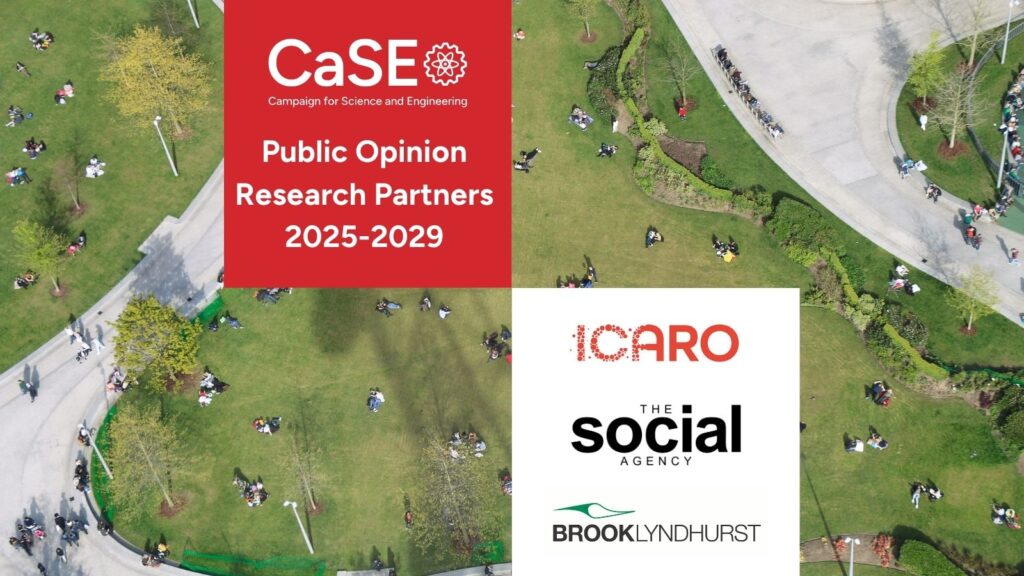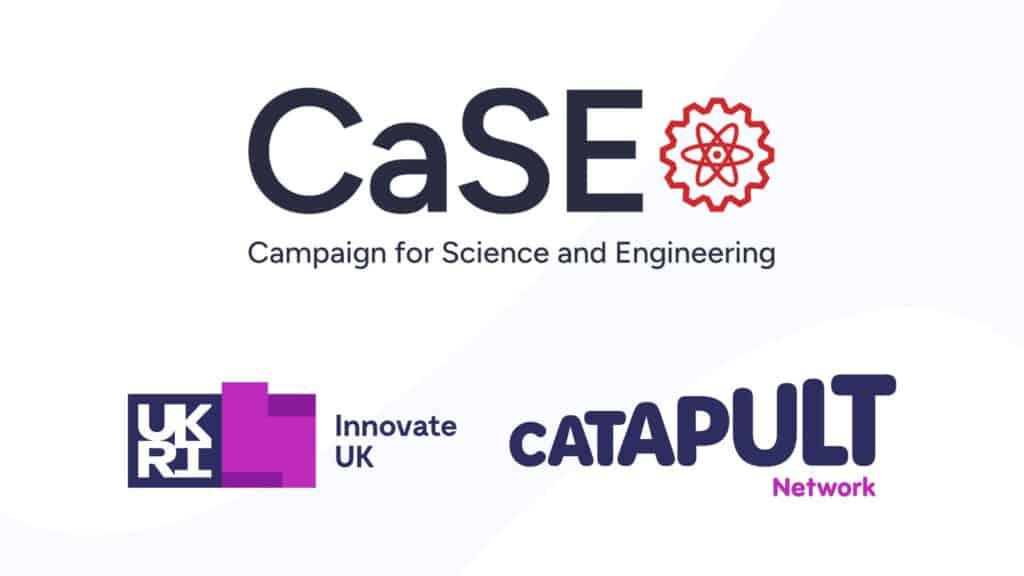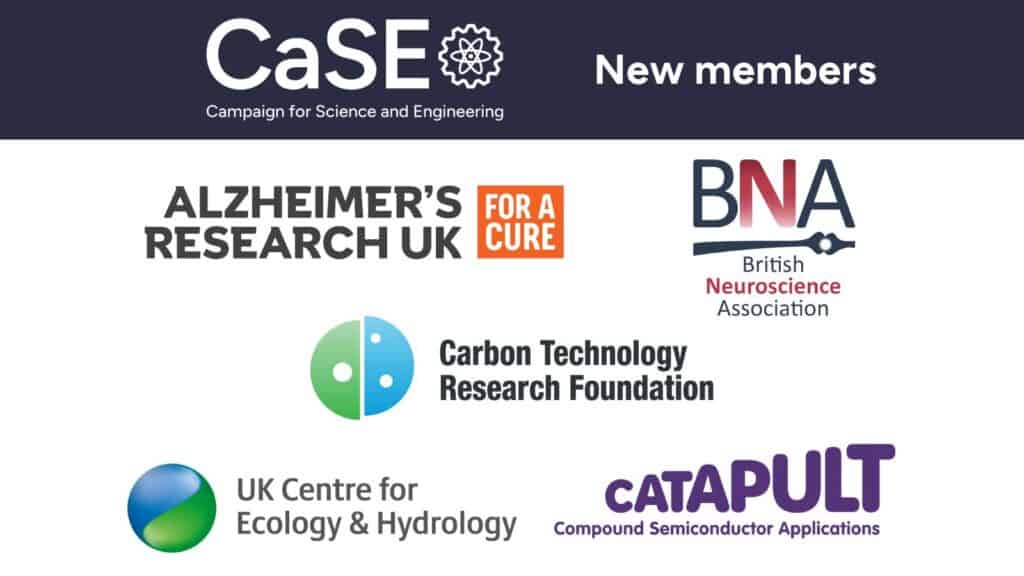We are pleased to welcome these UK-wide organisations as new members of CaSE.
CaSE welcomes The Alan Turing Institute, University of Glasgow and Glasgow Science Centre as new organisational members
15 May 2019
Commenting on today’s announcement, Dr Sarah Main, Executive Director of the Campaign for the Science and Engineering, said:
I am delighted to welcome The Alan Turing Institute, the University of Glasgow and Glasgow Science Centre as new organisational members of CaSE. Today’s announcement underlines the breadth and depth of cutting-edge research centres across the UK, maintaining this country’s position at the forefont of world-changing innovation and inspiring the public with the wonders of scientific discovery.
These three new members will further enhance the diverse range of organisations that CaSE represents and strengthen our voice with government in ensuring that the UK is the ‘go-to’ place for science and engineering.
Professor Sir Adrian Smith, Institute Director and Chief Executive, The Alan Turing Institute:
At The Alan Turing Institute we are not only working to tackle some of the biggest challenges in science, society and the economy, but also to ensure that we are training the next generation of data science and AI leaders. We are delighted to support CaSE and its members to ensure that the UK has the skills, funding and policies in place to achieve these critical goals. The Turing is proud to join the efforts led by CaSE and is looking forward to working collaboratively to ensure the UK remains one of the best places in the world for science and engineering.
Professor Sir Anton Muscatelli, Principal, University of Glasgow:
The University of Glasgow is delighted to become a member of CaSE and to add our support to the campaign. For more than 550 years this University has been leading the way with world-changing research. This year we are celebrating the 200th anniversary of the death of James Watt, just one of the many scientific pioneers associated with this University.
The University has six Research Beacons – cross-disciplinary areas of research excellence which address major challenges that have impact on both a national and international scale. These include “Future Life” research – an investigation into how life started on earth and whether we can design and construct new biological pathways or systems that do not exist in nature but that mirror or enhance its properties; and Nano and Quantum technology – we lead the UK’s Quantum Technology Hub in imaging; host the James Watt Nanofabrication Centre, the UK’s leading facility; and are members of a world-leading international Max-Planck Partnership in Measurement and Observation at the Quantum Limit.
We are training the next generation of scientists and engineers though our Doctoral Training Programmes, for example in Sensing and Measurement, Social Intelligent Artificial Agents, and Future Ultrasonic Engineering, and our Innovation Centre, CENSIS, which pioneers new sensor systems for industry. We are hugely ambitious in these and many other important areas of science and engineering research at Glasgow and are pleased to be able to promote Science and Engineering whenever we can.
Dr Stephen Breslin, Chief Executive, Glasgow Science Centre:
Membership of CaSE will allow Glasgow Science Centre to work in partnership with a host of businesses, universities and individual scientists and engineers to inspire more people to engage with science. We firmly believe that science is for everyone and we look forward to working with CaSE and its members to highlight the important role that science has in everyone’s lives.
More about the three new organisational members:
The Alan Turing Institute
The Alan Turing Institute is the UK’s national institute for data science and artificial intelligence. The Institute is named in honour of Alan Turing, whose pioneering work in theoretical and applied mathematics, engineering and computing is considered to have laid the foundations for modern-day data science and artificial intelligence. The Institute’s goals are to undertake world-class research in data science and artificial intelligence, apply its research to real-world problems, drive economic impact and societal good, lead the training of a new generation of scientists, and shape the public conversation around data.
University of Glasgow
Founded in 1451, the University of Glasgow is the fourth oldest university in the English-speaking world. The University is one of the top 100 of the world’s universities and have been named Scottish University of the Year by The Times and The Sunday Times Good University Guide 2018. The University welcomes students from more than 140 countries worldwide and has around 28,000 undergraduate and postgraduate students. It is also a major employer in the city of Glasgow with more than 8,000 staff, including more than 3,400 research and teaching staff; its annual research income is more than £179m. The University of Glasgow is a member of the prestigious Russell Group of leading UK research universities and was ranked first in the Russell Group for teaching (NSS 2018). It is also a founding member of Universitas 21, an international grouping of universities dedicated to setting worldwide standards for higher education and a founding member of The Guild of European Research Intensive Universities.
Glasgow Science Centre
Glasgow Science Centre is the largest Science Centre in Scotland. In 2017/18, the centre welcomed more than 330,000 visitors through its doors. Glasgow Science Centre’s mission is to inspire people of all ages to explore and understand the world around them, to discover and enjoy science and understand its relevance to their own lives.
Related press

CaSE is pleased to announce the consortium of organisations, led by research agency Icaro, that will deliver the next phase of its public opinion research running 2025-2029.

Campaign for Science and Engineering (CaSE) is delighted to announce that the Innovate UK Catapult Network has become its latest member organisation.

CaSE is delighted to announce five new organisational members.

CaSE has been awarded a grant of £2.7million over five years by Wellcome, to extend and evolve our work exploring public opinion towards R&D.